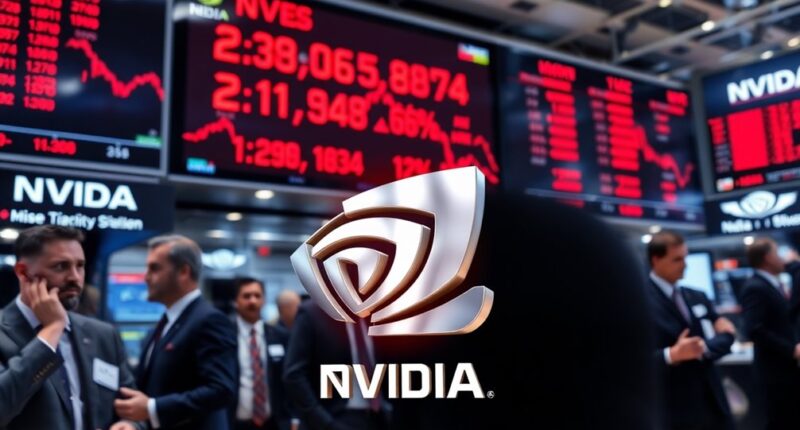Nvidia's recent stock crash has raised eyebrows, leaving many investors wondering if now's the right time to jump in. With an 18% decline and a staggering loss of over $600 billion in market valuation, the situation seems dire. Yet, the demand for advanced AI chips continues to grow. Could this turmoil signal a strategic opportunity, or are the risks too great? Let's explore what this means for Nvidia's future in the rapidly evolving AI landscape.

As Nvidia's stock plummeted by 18% during trading on Wall Street, it became clear that the tech giant faced a significant challenge. This historic crash wiped out over $600 billion in market valuation, marking the largest stock market slump in history. Despite this setback, Nvidia still holds a valuation of approximately $2.9 trillion.
However, the broader tech landscape took a hit as nearly $1 trillion evaporated from global markets. You might be wondering if this crash presents a golden opportunity to invest in Nvidia, or if it signals deeper issues within the company and the industry.
The root of this crash lies in the emergence of a highly advanced AI model from the Chinese startup DeepSeek. Their model was developed for a mere $5.6 million, raising questions about Nvidia's competitive edge, especially considering the significant investments American firms have made. This situation is compounded by the fact that Nvidia's recent decline equated to over a third of the FTSE 100's total market capitalization.
With US restrictions on exporting advanced microchips to China, concerns about the global AI race have escalated. The debut of DeepSeek's model has fueled fears of an AI bubble popping, shaking investor confidence in US tech firms, and putting Nvidia's reliance on high-end AI chip sales to the test.
This turmoil led to a broader sell-off in tech stocks, negatively impacting major players like Microsoft and Meta. Both companies have rushed to announce significant investments in AI, expanding their teams and infrastructure to keep pace.
Other firms, including SoftBank and OpenAI, have also committed substantial funds to AI, indicating that the sector remains attractive despite the turbulence. Amidst this chaos, Nvidia has pointed to the potential demand for its chips in the Chinese market, hoping to reassure investors.
Even with these recent losses, Nvidia's stock is still significantly higher than it was five years ago. Analysts suggest the market might be due for a correction after Nvidia's dramatic run-up. Investing now could be seen as a strategic move, capitalizing on the potential growth in the AI sector, which continues to attract massive investments.
As the competitive landscape in AI technology grows increasingly complex with new players like DeepSeek, the question remains: Is this crash a buying opportunity for you, or does it signal deeper troubles in the tech industry? The answer may depend on your confidence in Nvidia's ability to adapt and thrive in this rapidly changing environment.









